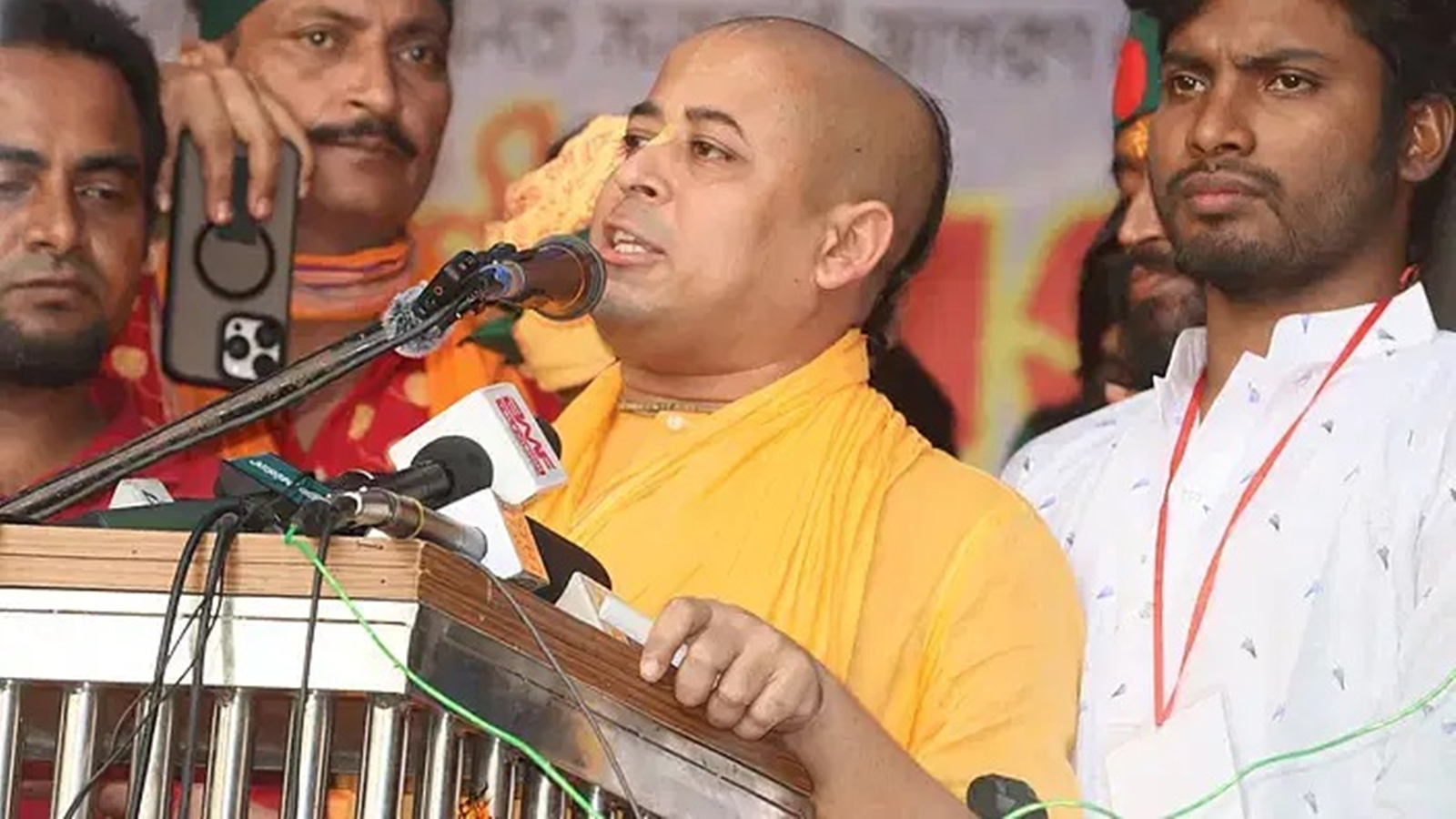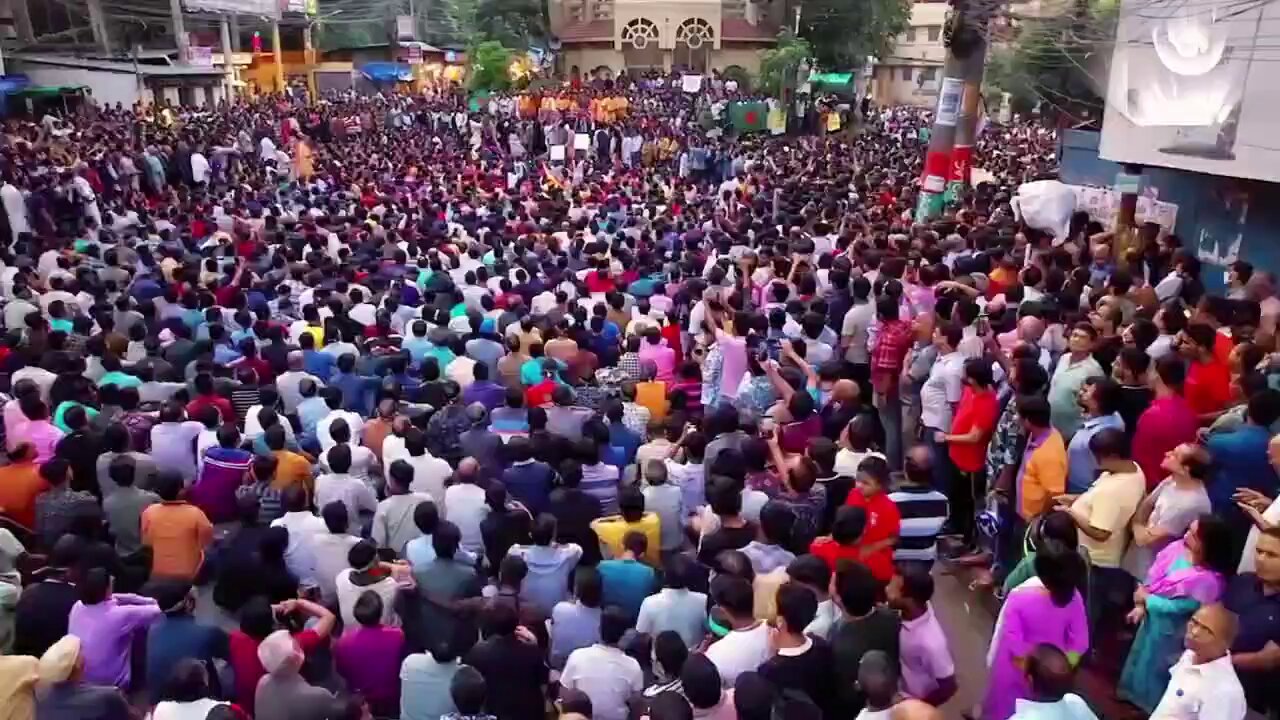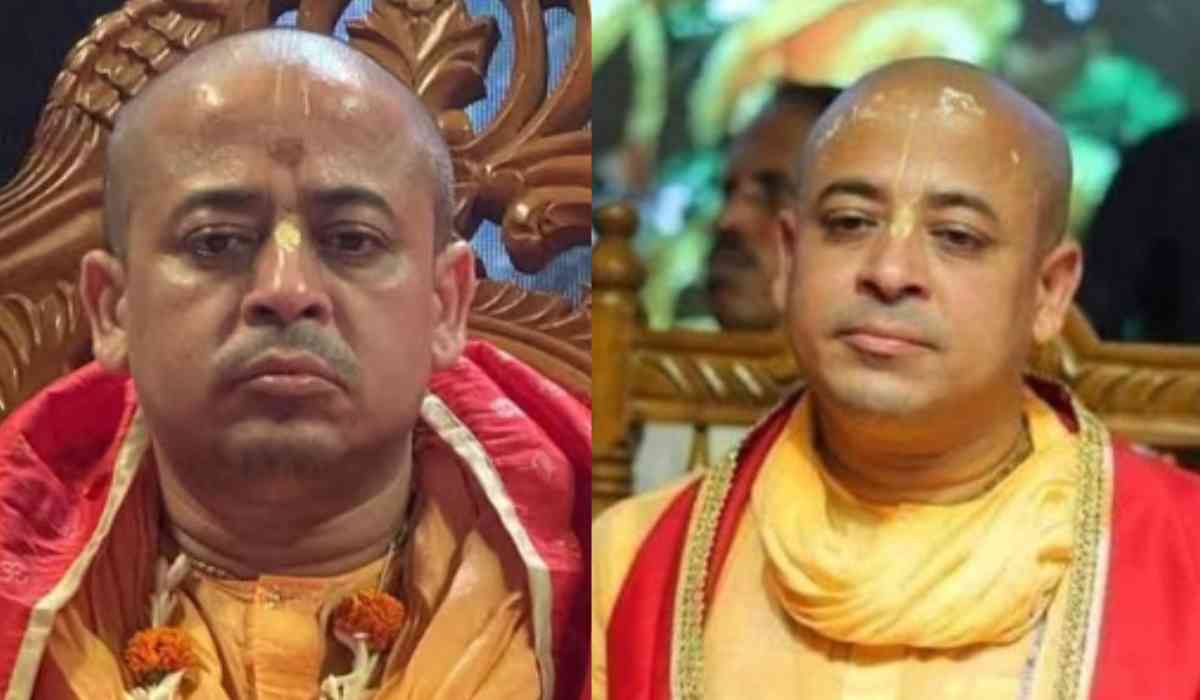A diplomatic dispute between India and Bangladesh intensified on November 26, 2024, following the arrest of Chinmoy Krishna Das, an influential leader of the International Society for Krishna Consciousness (ISKCON), amid violent protests in Bangladesh. The Indian Ministry of External Affairs (MEA) expressed deep concern over the incident, condemning the arrest and the subsequent denial of bail to Mr. Das, while also highlighting increasing attacks on minority communities in Bangladesh.

India’s Concern Over Arrest of ISKCON Leader
The MEA issued a statement on November 26, expressing deep concern over the treatment of Mr. Das, who was sent to jail following clashes in Chittagong. In its remarks, the Indian government called on Bangladesh’s interim government to "ensure the safety and security of Hindus and all minorities" in the country. This statement followed an earlier incident where Mr. Das, who also serves as a spokesperson for the Bangladesh Sammilit Sanatan Jagran Jote, was arrested at Dhaka’s Shah Jalal International Airport on November 25.
The charges stem from an October 25 rally in Chittagong, during which Mr. Das and his supporters allegedly insulted the national flag of Bangladesh. The MEA condemned the charges against him, noting that while minority communities in Bangladesh had reportedly faced multiple attacks in recent months, the perpetrators of such violence remained at large.
Protests Erupt in Bangladesh Following Arrest
The arrest of Mr. Das sparked widespread protests across Bangladesh, particularly in Dhaka, Chittagong, and Barishal, where police used force to disperse crowds. As protests escalated, a lawyer named Saiful Islam Alif was tragically killed during the clashes. The Bangladesh government condemned the death, describing it as "brutal." Despite this, the protests highlighted growing tensions regarding the treatment of religious minorities in the country.

Bangladesh Responds to India’s Remarks
In response to India’s concerns, Bangladesh’s Ministry of Foreign Affairs criticized the MEA’s statement, claiming that it misrepresented facts and was contrary to the spirit of friendship between the two neighboring countries. The statement argued that the issue at hand was an internal matter for Bangladesh and accused India of interfering in its domestic affairs.
The Bangladesh government, led by an interim administration after the fall of Sheikh Hasina's government in August 2024, has downplayed the significance of the attacks on minority communities, with Chief Advisor Prof. Muhammad Yunus recently asserting that such claims did not "fit" the current government's human rights record.
The Ongoing Political and Religious Tensions
The situation continues to fuel political and religious tensions, with religious groups and political parties across the region calling for justice. The West Bengal BJP has urged the Bangladesh government to release Mr. Das, while ISKCON representatives in Bangladesh have denounced his arrest and reiterated the need for peaceful coexistence among communities.
As both countries navigate this sensitive issue, the international community remains focused on how the situation will evolve and whether diplomatic efforts can restore calm.
Also Read: India Signs $2 Million Agreement with International Solar Alliance to Boost Solar Energy
With inputs from agencies
Image Source: Multiple agencies
© Copyright 2024. All Rights Reserved Powered by Vygr Media.





















